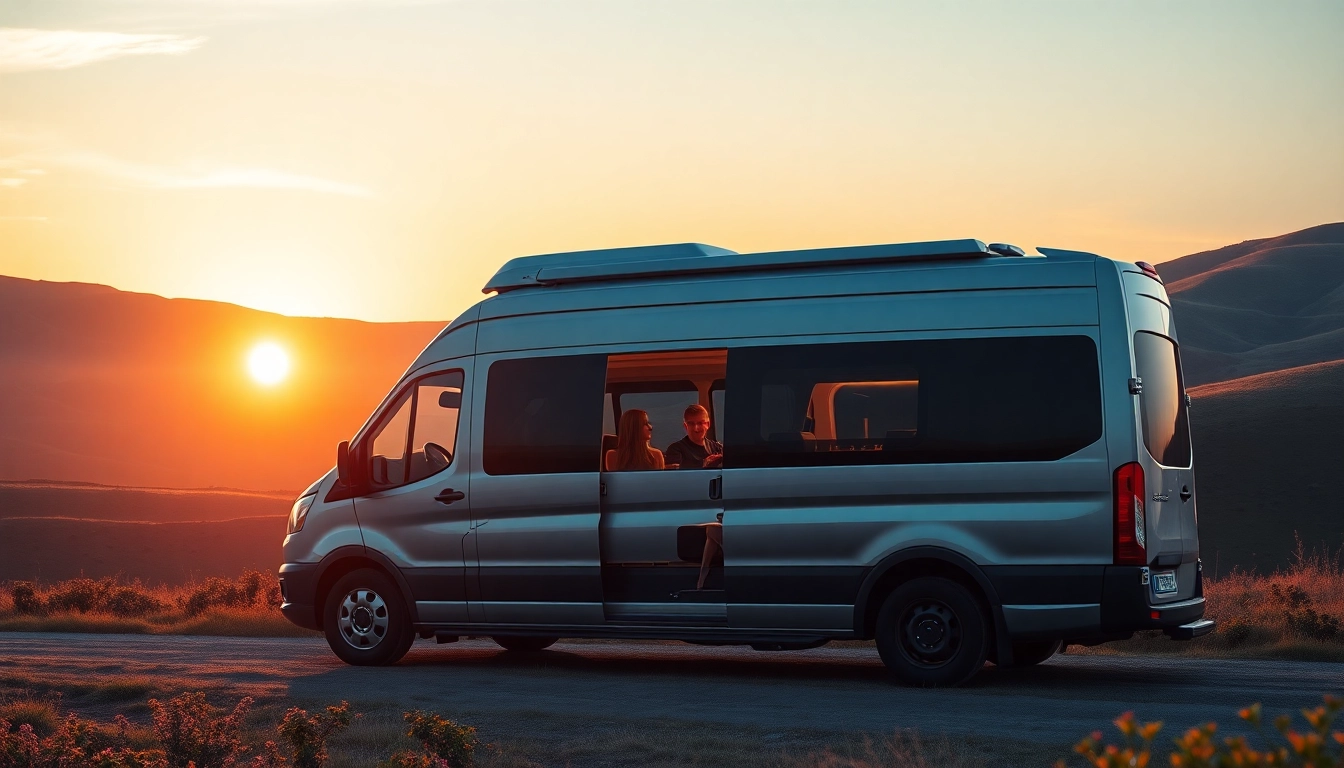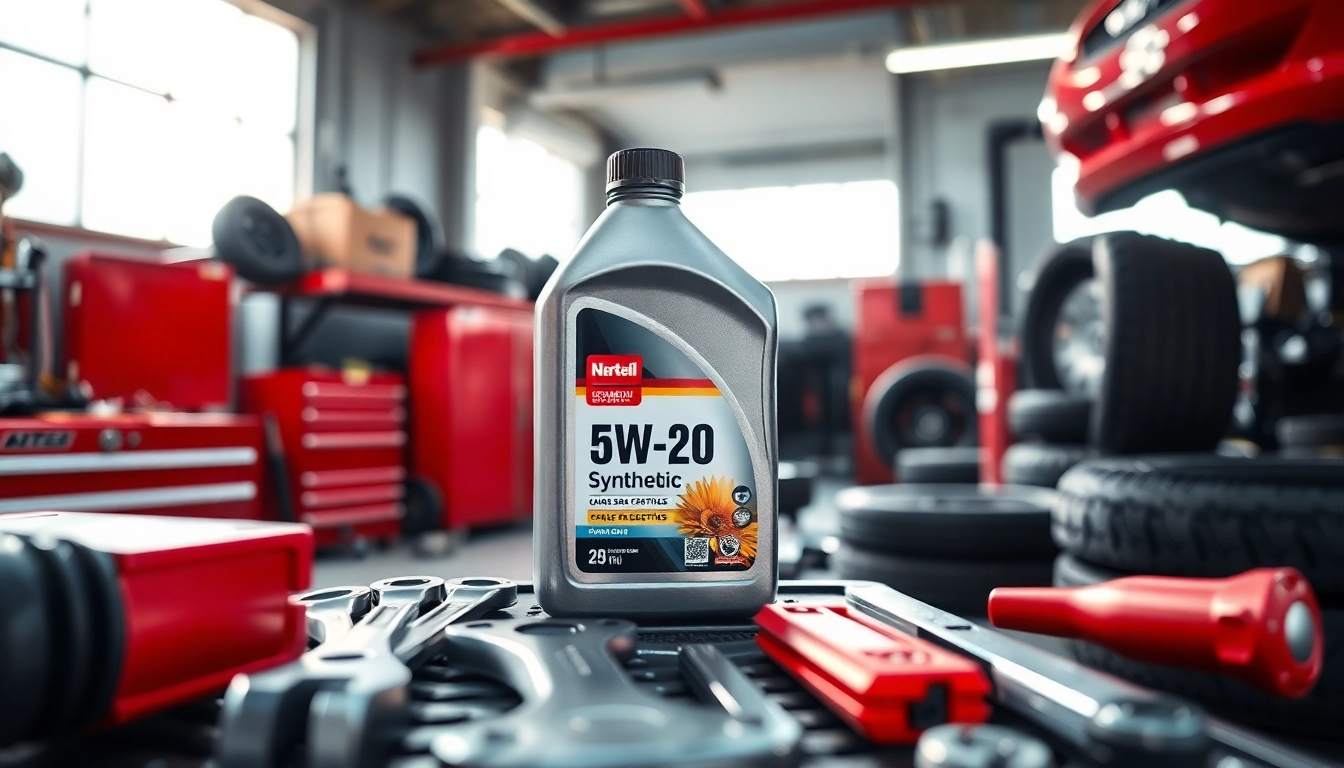Understanding the Perfect Van: What Makes It Ideal?
As the trend of van living rises, so does the quest for the perfect Van. Whether it’s for travel, commuting, or full-time living, the perfect van encompasses a blend of comfort, functionality, and personal style. But what exactly makes a van “perfect”? This section delves deep into defining the perfect van for travelers and exploring the key features that contribute to an ideal vehicle.
Defining the Perfect Van for Travelers
The definition of the perfect van varies from person to person, influenced by individual needs and lifestyles. For some, it may mean a reliable vehicle equipped for long road trips, while for others, it serves as a cozy home on wheels. A perfect van for travelers often includes the following criteria:
- Reliability: A dependable engine and solid build are non-negotiable for worry-free adventures.
- Space: Ample storage and living space make a van comfortable for long stays.
- Fuel Efficiency: A van that doesn’t guzzle fuel can save money for travel experiences.
- Customizability: The ability to alter the interior and exterior according to personal preference enhances the traveling experience.
- Safety Features: Modern safety technologies such as lane assistance and parking sensors provide peace of mind on the road.
Key Features to Look For
When searching for the perfect van, certain features become paramount. Here are some critical factors to consider:
- Interior Layout: The arrangement of seats and the sleeping area should suit your daily needs and lifestyle, allowing for easy movement and accessibility.
- Kitchen Facilities: Look for a van equipped with a cooking area, ideally with a refrigerator and sink, to facilitate meal preparation during travels.
- Bathroom Amenities: For extended trips, having a compact bathroom area can significantly increase comfort levels.
- Climate Control: Good insulation and heating or air conditioning options are crucial for year-round use.
- Solar Power Setup: As the van life often includes off-grid adventures, solar panels can help in powering appliances without relying on external sources.
Choosing the Right Size and Layout
Selecting the right size and layout of a van can be overwhelming, especially with many available options. Here are some guidelines for choosing wisely:
- Determine Usage: Consider how you will use the van – whether for weekend trips, full-time living, or as a mobile office.
- Assess Your Travel Style: If you enjoy hosteling versus remote camping, this will influence whether you need a large van or a smaller, more maneuverable option.
- Test Space Requirements: Visualize how many people will regularly use the van and the amount of gear you’ll need to store.
- Consider Parking and Driveability: Ensure that the van you choose is manageable in urban environments, where parking space may be limited.
Tips for Customizing Your Perfect Van
Customization plays a vital role in making a van feel like home. The following section outlines some practical tips and ideas for personalizing your van conversion.
Interior Design Ideas that Enhance Comfort
Transforming the interior of your van into a comfortable living space can greatly enhance your travel experience. Here are some design ideas:
- Use Multifunctional Furniture: Consider convertible furniture, such as sofas that turn into beds or tables that can be folded away to create space.
- Personalized Decor: Use wall art, curtains, and cushions that reflect your personal style and make the space feel warm and inviting.
- Lighting Solutions: Implement various lighting options, including fairy lights, LED strips, and mood lights for atmosphere and practicality.
- Storage Solutions: Optimize vertical space with shelves or under-bed storage to keep essentials organized and readily available.
- Smart Home Integration: Consider smart home features like voice-activated lighting or temperature control for convenience.
Functional Upgrades: Making Your Van Work for You
While aesthetics are vital, functional upgrades can enhance the utility of your van. Here are some upgrades to consider:
- Power Management Systems: Install battery management systems to control power usage, ensuring availability for appliances.
- Fuel Efficiency Modifications: Tuning the engine, opting for lightweight materials, or adding aerodynamic features can improve efficiency.
- Advanced Safety Features: Adding features such as rearview cameras or parking sensors can make driving safer and more convenient.
- High-Quality Insulation: Invest in superior insulation materials to regulate temperature, making the van more comfortable year-round.
Incorporating Sustainable Solutions
As environmental awareness grows, integrating sustainable solutions in van customization becomes more critical. Here are some suggestions:
- Solar Panels: Utilize solar energy to power devices, reducing dependency on fossil fuels.
- Water Conservation Systems: Implement systems for greywater recycling and rainwater collection.
- Eco-Friendly Materials: Use recycled or sustainably sourced materials for van interiors and furniture.
- Plant-Based Products: Incorporate plant-based cleaning and personal care products to minimize chemical use.
Comparative Insights: Perfect Van Models on the Market
With many options available, understanding what sets different van models apart is essential when searching for your ideal vehicle. Below is an analysis of some popular models currently on the market.
Top Models Compared: Features and Benefits
Examining the characteristics of popular van models can help narrow down the perfect choice. Here’s a look at a few top contenders:
| Model | Key Features | Pros | Cons |
|---|---|---|---|
| Mercedes Sprinter | Large cargo space, tall roof option, customizability | Durable, versatile, good resale value | Higher price point, costly maintenance |
| Ford Transit | Multiple size options, great handling, strong engine choices | Affordable, reliable, easy to find parts | Less upscale interior compared to competitors |
| Ram ProMaster | Wide cargo area, competitive price, front-wheel drive | Best for city driving, efficient fuel economy | Less powerful engines available, some complaints about reliability |
| Nissan NV | Powerful V8 engine option, good payload capacity | Excellent towing capabilities, rugged build | Heavy body impacts fuel efficiency, fewer customization options |
Price Points and Budgeting for Your Perfect Van
Understanding price points is essential when acquiring your perfect van. Budgeting can vary widely based on model choice, customization level, and whether the van is new or used. Here’s a guide to base costs:
- New Vans: Expect to spend between $30,000 to $70,000 depending on the brand and model.
- Used Vans: Older models can range from $15,000 to $40,000, with careful inspection recommended.
- Conversion Costs: Basic conversions may start at around $5,000 but can escalate to $30,000 or more based on complexity.
Manufacturer and Brand Considerations
When selecting your van, the brand and manufacturer can influence reliability, resale value, and availability of service. Consider the following aspects:
- Reputation: Research brand histories and user feedback to gauge reliability.
- Availability of Service Centers: Ensure access to authorized service stations to ease maintenance challenges.
- Warranty Offerings: Compare warranties to ensure your investment is protected against unforeseen issues.
Exploring the Lifestyle of Van Living
Choosing to live in a van is a significant lifestyle change that can offer unparalleled freedom. In this section, we explore the benefits and challenges of van living and how to navigate them.
Benefits of Choosing the Perfect Van for Full-Time Living
Living full-time in a van comes with numerous advantages, such as:
- Cost Savings: Reduced housing costs can free up finances for travel and exploration.
- Flexibility and Freedom: The ability to travel at a moment’s notice offers tremendous opportunities for adventure.
- Connection with Nature: Proximity to nature fosters a heightened appreciation of natural landscapes.
- Simplified Living: Downsizing necessitates a minimalist mindset, promoting a less cluttered lifestyle.
- Community Connection: Engaging with fellow van dwellers fosters a sense of belonging and shared experiences.
Challenges and Solutions When Living in a Van
While rewarding, van living is not without its challenges. Here are common concerns and practical solutions:
- Limited Space: Invest in storage solutions and exercise discipline in packing to maintain organization.
- Privacy Issues: Use curtains or window coverings for privacy, particularly in urban settings.
- Access to Amenities: Plan routes and destinations with reliable access to amenities like showers and laundry facilities.
- Dealing with Inconveniences: Embrace flexibility and readiness to adapt to changes in plans or conditions.
Building a Community of Van Lifers
Creating connections with fellow van lifers can greatly enhance your experience. Here are ways to engage with the community:
- Join Online Forums: Platforms like Reddit or Facebook groups focused on van life can offer support and camaraderie.
- Attend Van Life Gatherings: Participate in community events to meet like-minded individuals and share knowledge.
- Engage with Local Clubs: Many areas have local clubs or meet-ups for van enthusiasts—collaborate and learn from one another.
Maintenance and Upkeep of Your Perfect Van
Ensuring your van remains in optimal condition requires regular maintenance. Below, we discuss essential practices for upkeep.
Routine Maintenance Tasks to Ensure Longevity
Keeping your perfect van in shape involves consistent care. Here are critical maintenance tasks:
- Oil Changes: Change your oil at recommended intervals to keep the engine running smoothly.
- Tire Care: Regularly check tire pressure and tread depth; rotate tires every 5,000 to 7,000 miles.
- Brake Inspections: Monitor brake performance, and replace pads when you notice wear.
- Battery Maintenance: Check battery terminals for corrosion and inspect the battery condition periodically.
Seasonal Preparations for Your Van
Seasonal changes call for specific preparations to ensure the van remains comfortable and functional:
- Winterizing: Use antifreeze, check the heating system, and insulate areas prone to cold drafts.
- Summer Preparedness: Ensure the air conditioning is functioning and check cooling systems before heat sets in.
- Rain Readiness: Inspect seals around windows and doors and keep drainage areas clear to avoid flooding.
Handling Repairs and Troubleshooting Common Issues
Every van owner should know how to handle repairs and troubleshoot common problems. Here’s how:
- Stay Prepared: Keep basic tools and spare parts like fuses, bulbs, and filters on hand for minor repairs.
- Know Your Limits: Familiarize yourself with the van’s operation manual and prevent high-cost repairs by performing minor fixes.
- Seek Professional Help: Know when to consult with a mechanic for more complex repairs to avoid further damage.



